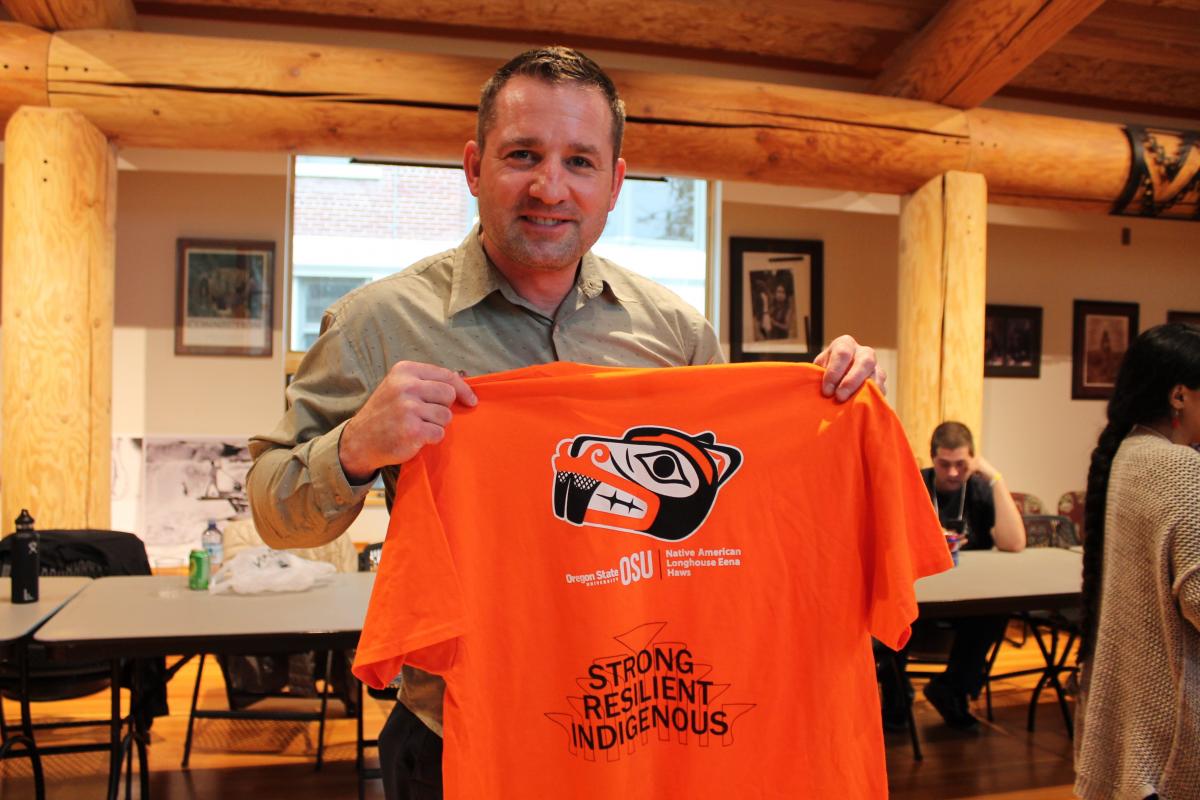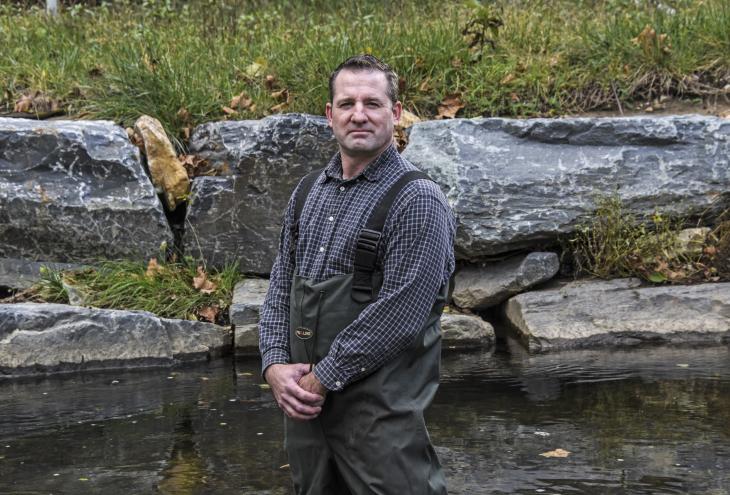I grew up in a high-crime area in suburban Baltimore. Violence, drugs, and alcoholism were rampant — a fertile recruiting ground for street gangs. But my desire to protect and provide for my family, as well as my love for the environment, guided me to a different path.
My interest in environmental sciences came through a combination of my Native identity and my experiences as a young man. Being Native American — my father is Penobscot and my mother is Cherokee — my life has centered on environmental stewardship. We would spend our weekends in parks, nature centers, or the forest. Family vacations included trips to their respective reservations or the reservations of other tribes.
I became an environmental activist in my teens as a member of Greenpeace. Then as a member of the Center for Oceanic Research, I was involved in protesting an illegal offshore drilling operation. I was on a boat out of Gloucester, Mass., when the captain positioned the bow under the drill. The crew aboard the rig began spraying the boat with water cannons, but we held our position. It was an exhilarating realization that I could make a positive difference for our environment and for our people. This was just the beginning of my interest in environmental issues and ultimately environmental science.
In my 20s, I became involved in tribal politics and the fight to reduce pollutants in the sacred waters of the Penobscot River. I helped organize a coalition of the EPA, NAACP, and our tribe to protest the discharge of dioxins by the Great Northern Paper Mill in Millinocket, Maine.
In my 30s, I became an environmental steward volunteer at the Anita C. Leight Estuary Center in Maryland. This led me to water-quality work with the Maryland Department of Natural Resources. With these two organizations I assisted in initiatives like the development of the Maryland Amphibian and Reptile Atlas and zooplankton population counts and studies.

As I steadily became more experienced, my formal education followed. Although it took me 25 years and an intense struggle to complete my degree, it all fell into place. I completed an associate’s degree at the Community College of Baltimore County (CCBC), and then enrolled at Oregon State University, specifically for the flexibility of the Ecampus platform. I earned my BS in environmental sciences at OSU, graduating cum laude in June 2016. My degree gives me an understanding of the natural world and affords me interaction within it. Just as important, it provides a platform for me to benefit my brothers and sisters of the natural world, my family, and my tribe.
On my way to a degree I encountered three main obstacles — my children. Striking a balance between the demands of my family and pursuing my goals was challenging. My children were 15, 6, and 1 when I started to chase my bachelor’s degree. I made the decision to stay home with the kids while my wife pursued her career so that I could concentrate on acquiring my degree. I was able to work on my courses from 9 p.m. until 6 a.m. most nights. On Tuesdays and Thursdays, I attended a full day on campus, usually staying until 10 p.m.
Online coursework requires discipline and organization, as you have to be aware of the time constraints. Having a dedicated place to study and store my course materials kept me well organized. Luckily, my family became a big asset as well. In one field assignment I was studying Canada geese to determine which behavior dominated throughout the gaggle during the winter. I would have my kids with me and assign the older ones a behavior to watch for and keep a count. Sometimes creativity was the key to success. Another strength comes from my father, who taught me to stand up for what’s important to me.
The effort to push forward and finish my educational journey was not without great mentors and people who encouraged my success. From CCBC to Oregon State, I had allies I am eternally grateful to. And throughout I leaned on my mother, my brother, my sister-in-law, and my grandfather’s cousin I called “Nokamis” (“my grandmother” in our language) for support. My grandparents were huge supporters as well, as no one in my family had graduated with a four-year degree.
I encourage prospective students to research universities for the course of study you want to pursue. Schools tend to specialize, so select an institution that provides the greatest opportunity for success in your field. This was a major reason I chose Oregon State — the diversity of the courses was incredible.
My ultimate career goal is to have my own environmental consulting firm, teach environmental science at a local college, and assist tribes in protecting their natural assets. Threats from paper mills, mining, and pipelines continue to increase within tribal lands and adversely affect the food sources that sustain our people. I hope to use my knowledge and skills to improve this situation. Every day, I am reminded that an educated Native is a dangerous Native for those who oppose him or her.











